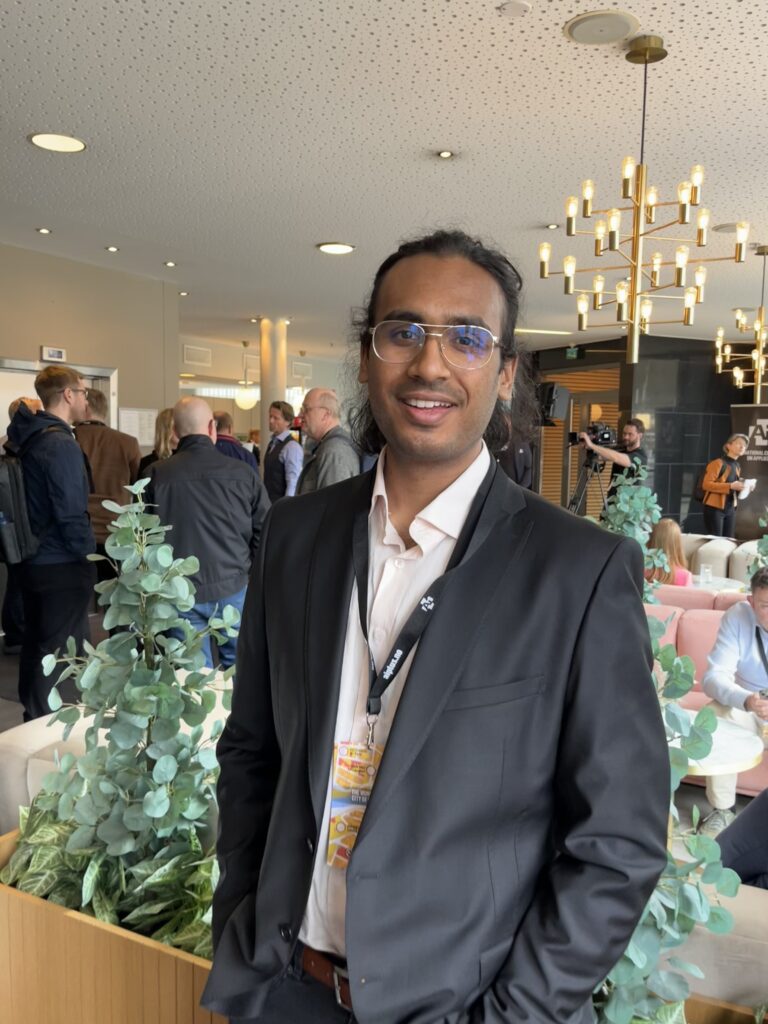
Kathir Tahasin is a Cambridge A-Levels alumnus from the 1401 cohort. He is pursuing a Master of Science in Data Science from the University of Stavanger. Prior to this, he completed his undergraduate studies in Computer, Information & Electronics Engineering at the International Islamic University Malaysia (IIUM) in 2020.
Kathir is now a Solution Architect and Head of Software Development Department at one of Norway’s largest renewable energy players.
In the world of academia, especially within esteemed institutions like MCKL, it is easy to feel overshadowed. My Cambridge A Level results were decent, but they did not stand out in a place where many peers were destined for top universities abroad. As someone who had always been the nerd with a Merit Scholarship, this was a humbling experience that forced me into deep introspection.
The challenge of finding oneself “middling” in a high-achieving environment is a common struggle for those who have always perceived themselves as relatively gifted. It is not limited to academics—artists, engineers, and professionals across various fields can feel their light dim when surrounded by others who shine just as brightly, if not more so. The pressure to excel in an environment brimming with talent can be daunting, often leading to self-doubt and discouragement.
In my case, this journey began with a significant setback. My first year of engineering was disastrous—I was so unmotivated that I nearly got expelled after sleeping through two finals. It was a stark contrast to the vision I had of attending a prestigious foreign university, fuelled by expectations that did not align with reality. Despite securing a partial scholarship, which many would consider an achievement, I could not shake the disappointment of unmet expectations.
Yet, as history shows, adversity can often lead to unexpected strength. The wake-up call from nearly failing my first year sparked a dramatic change in me. I went from being the ghost of my classes to sitting in the front row every day, asking more questions than the rest of the class combined. My GPA, once on the brink of dismissal, rose to first-class honours. This transformation taught me that motivation, something I had always observed with curiosity, could indeed be summoned when truly needed. As it turned out, I found some silver in the lining.

However, academic excellence does not always translate to professional success. The structured, predictable nature of academia is often absent in the workplace, where chaos, uncertainty, and conflicting directions are common. Early in my career, the steep technical learning curve and lack of direction were overwhelming. Despite having started working in my field before graduation and holding a strong portfolio, I found myself struggling to keep up. A performance review in my second job confirmed that I was on the edge of failure, and something had to change.
Despite initial successes, my career in Malaysia felt stifled. The rigid expectations and lack of creative freedom pushed me to seek a new path. Suddenly, the lining did not look very silver anymore. A leap of faith led me to Norway, where I joined an up-and-coming solar construction company that was growing rapidly but lacked structure. The choice to leave a predictable career for an uncertain but potentially rewarding opportunity felt natural.
When I joined the Norwegian firm, the IT department was small and disorganised, more reminiscent of a startup (like what you would see in the TV sitcom called “The Office”) than a corporate entity. Despite the humble beginnings, the company was experiencing meteoric growth, necessitating a move to more corporate procedures and spaces. Being part of this transition, and helping to drive it, was an exhilarating experience.
Leadership, as I quickly learned, is not just about technical competence or experience. It is about guiding a team, shaping processes, and managing relationships. In the early stages of our grand project—a complete modernisation of our Enterprise Resource Planning (ERP) system—I spent more time interviewing prospective users than writing code, ensuring that our work was aligned with their needs. This focus on user engagement helped transform vague dreams into concrete visions, laying the foundation for our eventual success.

Yet, the journey was far from smooth. Scope creep, shifting deadlines, and the ever-present challenge of delivering a perfect product tested our resolve. Despite the setbacks, the team grew stronger, and we learned the importance of political and institutional support in driving a project forward.
The first ideas for this project were uttered around August 2022. We delivered a final launch version of the system in June 2024, after 6 beta and alpha tests. The team, a disparate set of three engineers, had grown to a department of 15 across 5 structured teams in 10 nations. At this point, we own and maintain 6 enterprise grade solutions, from B2B data processing to B2C client acquisition systems. Our flagship, and proudest product by far, is a full-service ERP system that integrates nearly every facet of our company, connecting all our employees and their processes into one centralised node. This facilitates control and compliance, an important aspect for a Scandinavian green-shift firm deeply concerned with regulatory necessities. It also protects our data resources, something I am deeply aware of as a trained Data Scientist.
The key lesson here is that success is not defined by the results on paper or the number of successes we have, but by the lessons we learn, both during our triumphs and our losses. Education is not important because it defines your value, neither is it unimportant. You are not defined by how well you do in life, but you are going to be defined by the lessons you choose to take from it. To be motivated for your classes is not because you will be lost if you do not learn the trigonometric theorems, but because it puts you in an environment to learn, a terribly simple idea whose nuance is yet so often lost.
We often forget, in an era of universal education, literacy, and even information overload, that education has led to the single greatest uplift in social mobility and reduction in mortality in human history. It was not because you aced your paper that you are a winner, but because you are there at all. It is because you are immersed in an institution that teaches you to process information, social relationships, and familiarises you with challenges, that you have garnered victory. To do our best is often enough, because the battle does not end after your paper, or your degree, or individual work tenures. Life is long and full of upheavals, which my professional career excellently displays. In these upheavals, and even in their absence, lies every opportunity for transformation; you simply need to will it. I expect to climb many more curves, for the journey ends only when you choose for it to end.
There have been many great ups, followed by many great downs, and many middling in-betweens in my journey, and in each of these steps, it is the willingness to glean lessons, in whatever way I can, that is how I have defined my successes in life. Each of us defines our success, and each definition is equally valid. Every small conversation we have, every small social relationship we foster, can forge great wisdom deep into the future. Sometimes opportunities will saunter along; other times you must create them yourself. Sometimes you will succeed; other times you will fail.
Nothing is pointless, none of these are the end, for life is long, and the silver lining is quite often, you.
For More Information:
